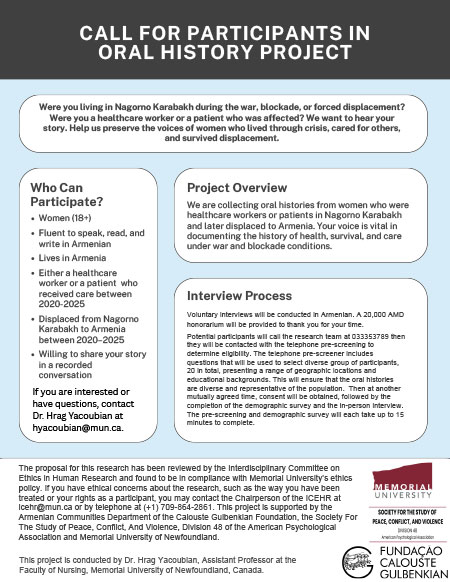About Nagorno-Karabakh, Artsakh
Nagorno-Karabakh, known to Armenians as Artsakh, has been historically inhabited by Indigenous Armenians for millennia. During the Soviet era, it became a disputed territory between Armenia and Azerbaijan when it was placed under Azerbaijani administration. While Artsakh has faced ongoing tensions and intermittent episodes of violence across decades, it has also suffered two full-scale wars.
The first war began to unfold in 1988, following the anti-Armenian pogroms in Sumgait and later in Baku, which placed the Armenian population of Artsakh under existential threat. The conflict ended in 1994 with an Armenian victory and the establishment of the Republic of Artsakh.
The second war, known as the 44-day war, began in 2020 and concluded with Azerbaijan seizing control of most of Artsakh’s territories. However, the violence did not end there. In December 2022, Azerbaijan imposed a blockade on Artsakh, precipitating a severe humanitarian crisis. This blockade culminated in a large-scale military offensive in September 2023, resulting in the forced displacement of the entire Armenian population of Artsakh and the dissolution of its state institutions.
The loss of thousands of lives, the mass displacement of Indigenous Armenians, and the continued detention and trial of Armenian prisoners of war in Baku have left deep and unhealed wounds. Adding to this trauma is the erasure of cultural identity: centuries-old Armenian churches, monasteries, khachkars (cross-stones), and cemeteries in Artsakh have been damaged, destroyed, or altered. Many face the threat of cultural appropriation or falsification, as historical Armenian heritage is relabeled or rewritten to deny its origins. Together, these human, cultural, and historical losses ensure that the pain of Artsakh is not only a memory of war, but an ongoing struggle against dispossession, cultural erasure, and historical injustice.
About The Project
Her Stories, Our Future: Oral Histories of Women’s Health and Displacement from Nagorno-Karabakh (Artsakh) to Armenia is an initiative that documents the oral histories of women healthcare workers and women patients who were displaced from Nagorno-Karabakh (Artsakh) to Armenia between 2020–2025. These women carry stories of caregiving, resilience, and survival in the face of war, siege, and forced displacement.
The project seeks to preserve and amplify their voices through trauma-informed and ethically grounded oral history methods. By centering women’s perspectives, it highlights experiences that are often overlooked in dominant narratives of conflict, displacement, and health care.
This work contributes both to historical memory and to present-day understanding of the human costs of war. In addition to creating a secure archive of testimonies the project will produce accessible reports, educational materials, and community-focused outputs. These will inform scholars, policymakers, educators, and the broader public, while ensuring that the women’s testimonies remain part of the historical record.
At its core, the project is guided by a commitment to justice, care, and dignity. By connecting individual narratives to larger struggles for human rights and health equity, it aims to honor the women of Artsakh, support healing, and build pathways for advocacy and collective memory.
We are currently recruiting participants, and interviews will be conducted in October and November 2025. Results from the study will be made available starting at the end of this year. Stay tuned for upcoming public engagement events where findings and stories will be shared with communities, educators, and policymakers.
This project is funded by



Email WhatsApp
Stories
Stay tuned for upcoming stories
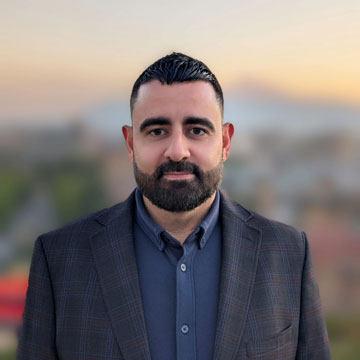
Dr. Hrag Yacoubian
Researcher
Dr. Hrag Yacoubian is an Assistant Professor at Memorial University of Newfoundland, Canada, where his research examines the intersections of healthcare, history, and social justice. He completed both his master’s and PhD at the University of British Columbia, Canada, focusing on history, humanitarianism, and healthcare in contexts of war and forced displacement.
His research program investigates healthcare experiences in diverse settings of crisis, reconciliation, and forced migration. Current projects include documenting the oral histories of women healthcare professionals and patients displaced from Nagorno-Karabakh (Artsakh) to Armenia, as well as exploring Indigenous healthcare students’ perspectives on reconciliation and the Truth and Reconciliation Commission’s Calls to Action within healthcare education in Canada. Across these initiatives, he emphasizes trauma-informed approaches, ethical engagement, and the preservation of marginalized voices.
Dr. Yacoubian contributes actively to scholarly and professional communities through committee service and organizational memberships. He is a member of the International Network of Genocide Scholars and serves on the Resolutions Committee of the International Association of Genocide Scholars. At Memorial University, he is a member of Senate and participates in faculty-level and institutional committees, including those focused on global health, equity, diversity, inclusion, and anti-racism. These commitments reflect his dedication to fostering collaborative scholarship, advancing healthcare justice, and building stronger connections between academic research and community priorities.
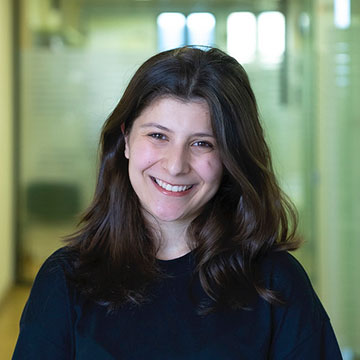
Lida Asilyan
Research Assistant
Lida Asilyan is an emerging education policy professional from Ijevan, Armenia, and a recent graduate of the Harvard Graduate School of Education (Ed.M. in Education Policy and Analysis, with a concentration in Global, International, and Comparative Education). At Harvard, she consulted for the Finnish National Agency for Education on anti-bullying policy and supported projects examining inclusive education, equity, and social-emotional learning. She also collaborated with peers at the MIT Martin Trust Center for Entrepreneurship and MIT Media Lab, where she explored applications of artificial intelligence in education and deepened her interest in the intersection of technology, policy, and learning.
She holds a BA in English and Communications from the American University of Armenia. Her earlier roles include advising at EducationUSA Armenia, coordinating alumni programs for American Councils for International Education, and contributing to oral history and human rights documentation with organizations such as the Rerooted Archive and the Center for Truth and Justice. Outside of her professional work, Lida is passionate about journalism and storytelling, and she enjoys writing as well as hiking Armenia’s mountain landscapes.
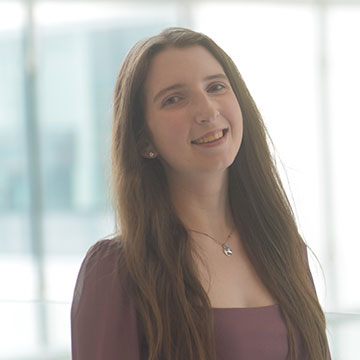
Ella Banfield
Research Assistant
Ella Banfield is a student at Memorial University of Newfoundland (MUN), where she is completing a Bachelor of Arts with an honours in history and a major in French. Her historical interest centres on women’s involvement in the British Empire during the 20th century, including their treatment in different parts of the empire, their fight for suffrage, and their role in World War One. She is currently an executive member of the MUN History Society, contributing to student involvement on campus and providing academic support to peers. Outside of school, she has worked as a museum assistant at the Admiralty House Communications Museum and hopes to become a French immersion history teacher in the future.
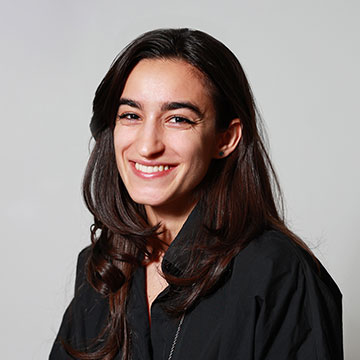
Khanum Gevorgyan
Research Assistant
Khanum Gevorgyan is a project director, policy analyst, and researcher specializing in education, human rights, gender equality, and democratic resilience in Armenia and the wider region. She currently serves as Projects Director at For Equal Rights NGO, where she leads multi-component initiatives, manages project budgets, designs monitoring and evaluation tools, and cultivates partnerships with donors and stakeholders. In parallel, she works as Fundraising Manager at Tun-Tegh NGO, coordinating advocacy efforts, securing resources, and providing humanitarian support to displaced and vulnerable communities.
With a strong background in education policy and alumni engagement, Khanum has worked as Education Policy Analyst at the Coalition to Stop Violence Against Women and as Education and Alumni Programs Specialist at the Children of Armenia Fund (COAF), where she designed and implemented an Alumni Engagement Strategy and built systems for long-term network sustainability. She holds a Master’s degree in Leadership for Change: Global and European Politics from Tampere University, Finland and a Bachelor’s degree in English and Communications from the American University of Armenia.
Khanum’s academic and professional interests are reflected in her publications, which cover themes of gender sensitivity in education, enemy images and foreign policy, and the role of militarization in shaping identity.
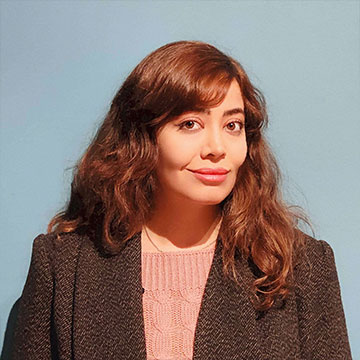
Sanaz Labbaf
Research Assistant
Sanaz Labbaf is a third-year PhD candidate in Sociology at Memorial University of Newfoundland. Her research and professional background center on qualitative methods and community-based projects, with experience spanning Canada and Western Asia. She has worked on initiatives involving housing policy, urban governance, and resilience, always with a focus on amplifying marginalized voices and mobilizing research for broader audiences. Sanaz has expertise in research organization, writing, and knowledge mobilization, with a commitment to cultural sensitivity and care in working with narratives of trauma and displacement.
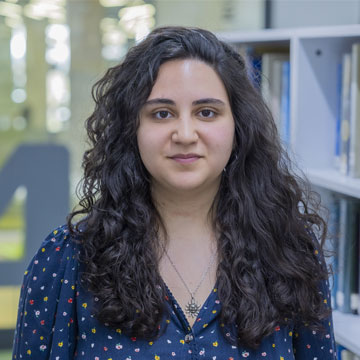
Tatevik Galstyan
Research Assistant
Tatevik Galstyan holds a BA in English and Communications from the American University of Armenia and an LLB in EU Law from the European Law and Governance School. She is currently a Teaching Associate at the American University of Armenia, where she mentors students in courses on social movements, education, oral history, and gender studies. Tatevik has been actively involved with the Oral History Matters initiative, serving as a coordinator, contributing to the archiving and documentation teams, and participating in several oral history projects conducted by the initiative. She has also worked as a Library Assistant at AUA’s AGBU Papazian Library, supporting research and community engagement.
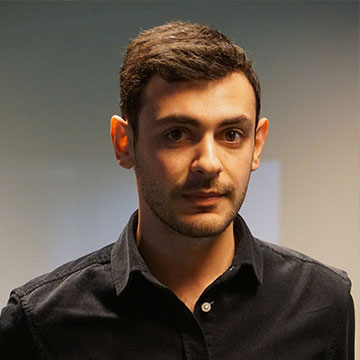
Samvel Khachatryan
Research Assistant and Transcriptionist
Samvel Khachatryan is a translator, author, and political scientist. He studied at the College of Humanities and Social Sciences of the American University of Armenia, where he earned a Master’s degree in Political Science and International Affairs. His thesis, “Examination of the Intersection of Populism and Democracy,” explored the possible relationship between democracy and populism in Armenia.
From 2021 to 2025, he worked at the Eurasia Partnership Foundation (EPF), one of the leading civil society organizations in Armenia, where he was part of the communications department. In this role, he contributed to projects that promoted civic engagement, public dialogue, and critical thinking. He was responsible for editing and proofreading EPF publications, available both online and in physical copies. These publications tackle issues of critical thinking, violence, power, criminal subculture, and more.
Alongside his professional work, Samvel has been active in translation and writing, focusing on topics that analyze trauma, memory, and prose. His interests include the study of populism, shared memory, and the role of civil society in Armenia and the wider region.

Armenuhi Nikoghosyan
Research Assistant
Armenuhi Nikoghosyan serves as a Project Coordinator at Hrant Dink Foundation, overseeing projects targeted at dialogue establishment between the societies of Armenia and Turkey and development of confidence building measures to find avenues for normalisation of relations between the two countries.
Since 2011, she has been involved in various dialogue projects and conflict transformation initiatives. She is also engaged in research projects on memory studies. She is a research fellow at the Oral History Center at the Institute of Archaeology and Ethnography (National Academy of Sciences of Armenia) and her research interests cover interactions between people of Armenia and Turkey, genocide and memory studies.
Armenuhi is also engaged in the BANALIK – Armenian Critical Memory Studies Initiative. The BANALIK’s team has developed an audiowalk tour "From Sebastia to Sebastia: Tracing Genocide Memories," revealing commemoration practices of the Armenian Genocide in the Soviet and post-Soviet period in Sebastia district of Yerevan where Armenians originally from Sebastia, Turkey, settled down after the Armenian Genocide. The memory tour is based on oral history interviews conducted with the generations of survivors from Sebastia.
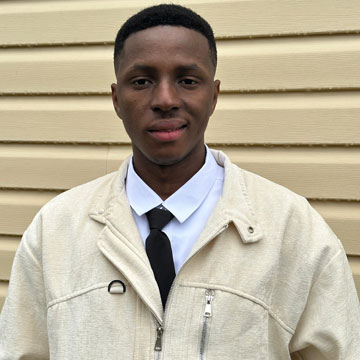
Frankline Onyiaike
Research Assistant
Frankline Onyiaikeis a Bachelor of Science in Nursing student at Memorial University of Newfoundland and a MUCEP Undergraduate Research Assistant. He has been recognized on the Faculty of Science Dean’s List (2023- 24) and is a recipient of multiple academic awards within the School of Nursing, including the Carol Anne Paddick School of Nursing Entrance Bursary, the Vernon and Phyllis Hollett Award in Nursing, and the Vincent Cooze Memorial Award.
Through faculty-led research roles, Frankline has supported projects through literature review and organizing research materials. He is pleased to contribute to the Oral History Project in Armenia as part of the research team.
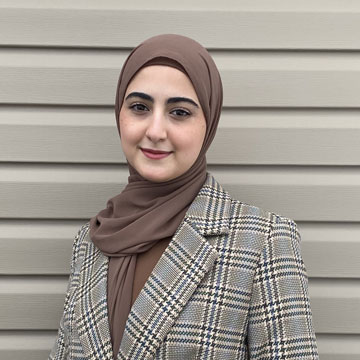
Nawar Abedalhalem
Research Assistant
Nawar Abedalhalem is a Bachelor of Science in Nursing student at Memorial University of Newfoundland. She has been named to the Dean’s List throughout her degree and is a recipient of the Mary Eileen Wight Award in Nursing and the Marilyn March Scholarship.
Nawar's interest in research started in high school through the Women in Science and Engineering program and has since grown through MUCEP research positions and a Summer Undergraduate Research Award in Biomedicine. Nawar presented a poster at the MUN Medicine Research Symposium and is excited to contribute to the qualitative focus of this project within the Faculty of Nursing.
In addition to her research interests, Nawar is actively involved in leadership and community service, including serving as President of the MUN Stem Cell Club and volunteering with multiple community organizations.
